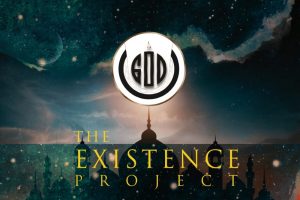
Sabahat Ali, USA
It is certainly a head-scratcher.
When knowledge of new discoveries made by scientists of the highest order is imparted to the general populace, it is almost always accepted at face value, despite the fact that less than 0.01% of the world’s population personally tests and verifies it.
Perhaps this is because they’re the professionals.
They themselves have read the results of the carbon-dating, seen the cell spliced, and witnessed the temperature increase to a new record, etc.
Yet, for the average person to know with absolute certainty that man has indeed set foot on the moon, for example, is a tricky point for proving. For one who seeks to doubt it on the basis that he hasn’t actually been to the moon himself, this reality can easily prove a murky one, flecked with uncertainties and mistrust.
Was the footage of the moon landing authentic? What motives would authorities have had to announce that they’ve reached the moon during the technological race prevalent at the time? How does the average citizen have absolute conviction, without a shadow of a doubt, that man has even really left the atmosphere?
Is it because a vast majority of society says it to be so? Or because the experts have announced it, and they know better? Or maybe it is the fact that it grants man a sense of achievement or comfort in knowing that such progress has been made? Doesn’t the average man simply take the word of the Astronauts who claim to have stepped upon the lunar crust?
It is crucial to note that when it comes to believing in the existence of anything, it is glaringly irrational to insist that everything must be confirmed in the manner that a person desires. Rather, it is upon people to do what they can to confirm the validity or falsity of news and information in an unbiased way.
Imagine that God was a being who manifested literally, for the naked eye to behold. What of those who are blind? Would they not have to simply take the word of people with eyes? And what about those who decide not to trust the ones with eyes, calling their claims to having seen God a bluff as well?
They too would rightfully lay blame upon God Almighty for not manifesting in a way that totally confirms without a modicum of suspicion or an inch of doubt that it is, in fact, God Almighty. Then, if this being were to claim that He has created the heavens and the Earth, literalists would demand that He create another heaven and another Earth before their eyes, otherwise they would not believe it. However, this would not be possible either, for any big bang which is visible to the naked eye would utterly destroy anyone close enough to witness it.
Those given to scientism – the belief that contends that only that reality which is authenticated as truth by the scientific method can be called truth – would demand that this claimant to Godhood become a test subject of theirs. After all, according to them, without developing a hypothesis, having controlled and dependent variables, and quantifying the extent of this being’s capabilities, they could not scientifically call him God.
But even this would struggle to find much publicity in more reputable journals which would demand that the entire ordeal be repeated a number of times and by third parties to demonstrate a lack of bias and consistency. All the while, this physical god would be dancing to the whims and caprice of his own creation just to prove that he exists.
It is an absurdity of the highest order, therefore, to demand that God should manifest Himself in a manner that man demands. Rather, the means by virtue of which God manifests should be, and must be, above and beyond the physical, and not limited by the sensory faculties of man.
Hope, trust, love, anger, hate, prejudice, time, desire: these are all things that transcend the physical, but that – in their right place – manifest through other signs. When does any sane person ever reject their existence? To demand that God should manifest in a certain way creates more problems than it resolves.
Enter the Human Mind
The question, then, follows: if the physical faculties are not sufficient to demonstrably substantiate the evidence of God Almighty, then what is?
Regarding this, the Fourth Caliph and Worldwide Head of the Ahmadiyya Muslim Community, Hazrat Mirza Tahir Ahmad (rh), writes:
‘The mind is the ultimate seat of consciousness. Deductive logic is the most amazing faculty of mind. Even when there are no facts fed to it, it may continue to operate with hypothetical data. It can also operate by ruminating over the previously stored data. All decision making is done at the level of the mind, while the brain is merely a material hardware, a storehouse of memory.
“Moreover, the mind has the power to contemplate upon metaphysical and conceptual issues like infinity and eternity. It endeavours to resolve the enigma of a seemingly endless chain of cause and effect. Where did a certain thing begin and what lies beyond every beginning? Was there a first cause preceding all other causes? If so, was that first cause living and conscious, or was it dead and mindless? The only rational conclusion the mind can draw is that the first cause could not be unconscious and dead.’ [1]
It just makes sense.
While all the physical faculties of humans are profoundly limited in their ability to discern, glean, and recognize the world around us, the mind is uniquely elastic. Our eyes are limited to particular wavelengths of light in the known spectrum, our ears can only pick up on certain frequencies, our skin can experience certain temperatures before our nerve endings stop transmitting. Likewise, we recognizably cannot smell nearly as much as certain other mammals, nor can we taste certain flavours.
However, the human mind is appreciably the one faculty which enables our finite selves to compute and theorize otherwise intangible values and data. It is the one container which can preserve and provide simultaneously immensities of data and complexities of thought which cannot be translated on paper. It enables us to entertain dialogues pertaining to infinities, micro-verses and multiverses all the same. It is the ideal laboratory for the rumination that Divine existence demands.
However, more compelling than all of this is the fact that the mind is the seat of reality, and so, it is the only shrine wherein the existence of a thing can be confirmed for any individual.
Explaining the Qur’anic concept of actualizing God, the Second Caliph and Worldwide Head of the Ahmadiyya Muslim Community, Mirza Bashiruddin Mahmud Ahmad (ra) writes in Ten Proofs of the Existence of God:’
‘The being of Allah the Exalted is such that eyes cannot reach Him but He reaches the eyes. And He is the Incomprehensible, the All-Aware.’ (Surah Al-An‘am, 6:104)…’ [2]
It is, after all, the only way.
If God Almighty waited for mankind to discover the so-called god-particle to make His existence known, then He would have failed all of mankind before that point. If He had sat around for the turn of the 20th Century and depended on bleeding edge technology and scientific breakthroughs to make Himself known through the Higgs boson or anti-neutrinos, He would have failed mankind altogether. And what of the billions of people who do not understand the higher sciences enough – what would their faith be based on?
While it is true that the critical examination and investigation of the cosmos and natural world provide powerful cases for the fact that God should exist, they fall short on delivering conviction that He does in fact exist. This is where the ancient and awe-inspiring faculty of the human mind comes neatly into play. Being the seat of each person’s reality, belief in God is something which must need manifest in the chambers of every person’s mind.
To be Continued…
(In the next part of the Existence of God series, we introduce the basis of all arguments for God Almighty – Who is God and what are His attributes?)
About the Author: Sabahat Ali is a graduate from the Canadian Ahmadiyya Institute of Languages and Theology. He currently serves as an Imam of the Ahmadiyya Muslim Community USA, and is a regular contributor for the Review of Religions.
ENDNOTES
[1] Revelation, Rationality, Knowledge, and Truth, Mirza Tahir Ahmad, Islam International Publications, 1988, pg. 273 https://www.alislam.org/library/books/RRKT.pdf
[2] Ten Proofs for the Existence of God by Hazrat Mirza Bashiruddin Mahmud Ahmad (ra) p. 6




Add Comment